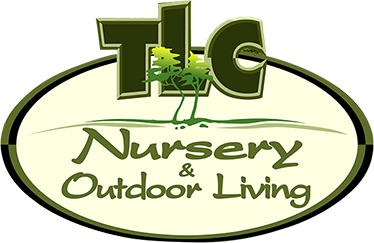TLC Nursery & Outdoor Living is all about making the most of your yard and garden. We know that the people in the Independence area love their lawns green and lush, and their flower gardens full of colorful flowers and a variety of foliage to add texture and beauty. We offer full- service lawn care and our garden center sells a wide selection of annuals perennials, fruits and vegetables, and trees of many times. We have a knowledgeable staff and a certified arborist on staff. Gardening is a healthy and rewarding hobby, and it can take you on journeys that allow you to enjoy your property and get something back. Specifically, backyard chickens and beehives are increasingly found around the area, so we thought we’d cover them in this week’s blog.
Backyard Chickens
With Easter approaching, many families will bring some chicks into their family. Watching them grow and taking care of them is something young and old can enjoy. To learn some tips for keeping chickens, keep reading!
Research Breeds
- Before you get chickens research the breeds and find the one that fits what you want from chickens.
- For chickens that lay lots of eggs, choose Rhode Island Reds or Black Australorps.
- For smaller, holdable chickens, try Silkies or Faverolle Chickens.
- Get only hens. Hens do not need a rooster to lay eggs, and roosters get aggressive.
Be Prepared!
- Your chickens will need safe places to roost at night, to lay their eggs and to scratch during the day.
- Make sure their coop is fully enclosed so that they will stay warm during the winter. Give them an enclosed area to scratch. If you let them roam free, they will eat your plants, dig up the ones they don’t eat and make dust baths under your favorite plants.
- Many people love portable coops with a small attached, enclosed yard area, so no one area gets overgrazed.
Food and Water
- Chickens love table scratch, and grass clippings and eating all the grasshoppers they can catch, but these are not enough.
- Chickens need specially formulated food to make sure they can produce eggs, and they love to eat scratch so make sure you have that on hand when you bring your chickens home.
- Chickens are not tidy animals, so you’ll have to be prepared to keep their water supply fresh and, in the winter, to make sure it is heated so it does not turn to ice.
Honey Bees
Honey bees are a keystone species and need to be protected, and supported. A keystone species is one that plays a disproportionately large role in their environment. A keystone in architecture is the stone at the top of the arch without which the entire arch falls. Bees are one of the most important, if not the most important, pollinator in our food system. Without bees, our food production system would collapse like an arch. Since colony collapse was first noted in 2006, scientists and farmers alike have been alarmed at rapidly declining numbers of beehives. While still mysterious there are several suspected causes, including neonicotinoid insecticides, the long and the short of it is that many more bees are dying off every winter, than are reproducing. If you are interested in keeping bees, keep reading!
Research!
It’s easy to learn about keeping bees. Youtube has lots of informative videos, there are good books for beginners, and The American Bee Journal all have great information about beekeeping.
Hives and Honey
Backyard hives are relatively easy to keep. You have to check on them periodically, feed them supplemental sugar water, and wrap the hive in the winter, but otherwise, they are pretty easy. Harvesting the honey is more complicated, but if you search out your local beekeeping club, you are sure to meet people who are happy to share their knowledge and tricks of the trade.
If you are interested in bees or chickens, stop by and see what help we can lend. We have a very knowledgeable staff and love all things that have to do with outdoor living. When you need lawn care, irrigation, or tree services, call TLC Nursery & Outdoor Living.


